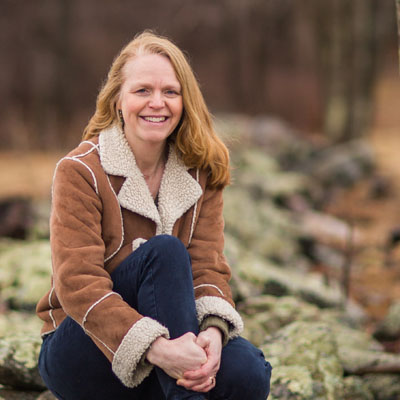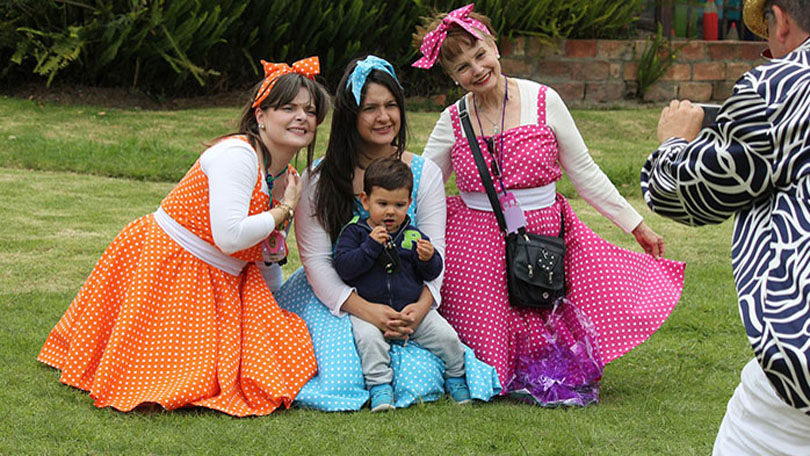Living with the emotional effects of sexual abuse is painful enough. Unfortunately, many survivors open up about their abuse only to find that their family members’ reactions toward them are just as painful — if not more so — than the original trauma. It may shock some people to learn that family members often choose to side with sexual abuse perpetrators and against their victims, especially if the abuse was committed within the family.
I regularly hear from sexual abuse survivors who tell me the myriad ways their families scold and reject them in the aftermath of disclosure, all while favoring their abusers. These brave survivors get left out of family gatherings while their abusers are invited. They are pressured to “forgive” the perpetrator (whatever that means) and consider his or her feelings — even while their own pain, responses to trauma, and/or anger toward the perpetrator are overlooked at best and condemned at worst. Survivors who press charges against their perpetrators often end up ostracized and blamed for ruining the abuser’s life, despite the obvious hypocrisy of this statement. In these situations, perpetrators are embraced and favored by family members as they join together in shutting down acknowledgment of, or attention to, sexual abuse. Survivors, on the other hand, are blamed and viewed as the troublemakers in the family.
This upside-down family attitude has a devastating effect on survivors. They are left feeling alone, unprotected and abused all over again. Denial, minimization, victim-blaming, scapegoating and ostracism are also common. All of this creates a secondary trauma and crushes survivors’ hopes of getting support from the very people who they assume will love and support them the most.
Here are the most common reasons family members side with sexual abusers:
Denial
In many cases, family members are simply not willing or able to look at the awful truth. They do not possess the strength or willingness to accept that sexual abuse was perpetrated within the family. It stands to reason that once their eyes are open to the truth, they would have an obligation to deal with its implications. This means holding abusers accountable, listening to victims’ feelings no matter how uncomfortable it makes them, reckoning with their own and other people’s mistakes, and admitting dark family secrets. It requires protecting minors and other vulnerable people from the possibility that abusers might re-offend — or already have. It means risking other people’s anger and doing the right thing, no matter how difficult. Unfortunately, far too few family members live up to these challenging moral imperatives. Instead, by denying or minimizing the abuse, they find a way to avoid dealing with its widespread and significant implications.
Even in cases where families believe that abuse was perpetrated or abusers admit or are found guilty of their crimes, denial allows family members to minimize its importance. Many simply never discuss the abuse again, or they act as though it’s not a big deal. Abuse at the hands of an older child might be characterized as “playing doctor”. The stepfather who abuses his step-child is excused under the guise of providing “sexual education”. Victims may be blamed for participating in their abuse, even if they were minors when it began and consent was legally impossible.
It is common for survivors to be told they need to “move on”, forgive their abusers, or “stop focusing on the past”. Many are told they are going against the will of God by standing up for themselves. Family members often accuse survivors of choosing to be negative and unhappy, a hurtful misunderstanding of their bravery in facing the truth and advocating for themselves in ways they never could as minors.
Abuse in Their Own Past
Sexual abuse perpetuates itself within families, especially if kept hidden and not appropriately acknowledged or addressed. When victims are too scared to tell, when others fail to believe or protect them, when perpetrators are not held accountable and parties are unable to heal, sexual abuse survives and thrives. Its reach extends to multiple branches of families and communities, inflicting damage and destruction throughout.
Where there is one sexual abuse victim in the family, there are often more. Significantly, it’s important to consider that some family members may have also been abused by the same perpetrator, or someone else in the family. While some fellow victims may be inspired by the survivor to come forward about their own trauma, others can be even more reluctant to look at family abuse because it brings up pain they are not prepared to address. The very family members whom survivors turn to for help are often limited by their own unresolved sexual trauma histories. And if they cannot face their own pain, they are less able or likely to show support and show compassion for others.
Fear or Awe of the Abuser
Despite images we might conjure of sexual offenders who are creepy, trench-coat wearing misfits, perpetrators actually come in all forms and inhabit every strata of society. Many are charming and manipulative. They may hold positions of power and have the ability to bestow gifts and money, meaning that family members have more to lose by going against them. These factors make it easier for abusers to win family members over to their side and align with them against the survivor. They may not be willing to risk their place of acceptance in the family and so they choose compliance and avoidance over allegiance to the survivor.
Some family members are afraid of an abuser’s wrath if confronted, due to their intimidating personality and/or a history of emotional abuse or violence. Their safety might be in jeopardy if they stand up to the abuser or even acknowledge the survivor’s claims.
They Are Perpetrators
The darkest reason people side with abusers and against victims is defensiveness due to the fact that they, too are perpetrators. Many sexual offenders were abused themselves. Because abuse frequently spreads through families, it is likely that if there is one sexual abuser in a family, there will be more. Not surprisingly, these family members will vigorously resist admitting the existence of sexual abuse in the family, or the harm that it causes to victims.
Final thoughts
“It is very tempting to take the side of the perpetrator. All the perpetrator asks is that the bystander do nothing. He appeals to the universal desire to see, hear, and speak no evil. The victim, on the contrary, asks the bystander to share the burden of pain. The victim demands action, engagement, and remembering.” – Judith Herman
Many family members find it far more comfortable to stick with the status quo. They prefer to maintain alliances with abusers because this allows them to turn away from uncomfortable truths and the difficult feelings they stir up. To face the truth, family members must cast off their defenses, upsetting their equilibrium and putting themselves on uncertain ground, forced to adjust to a different landscape that may be far more healthy and real, but exists in frighteningly uncharted territory with fewer places to hide.
Family members and survivors alike need to know that the pain and discomfort that comes from facing abuse is worth the very real rewards. Denying the truth hurts us too, and it always will. When we accept and embrace the truth, it frees us up to begin the journey toward a healthier, better life. Living in the truth is the only way to start to alleviate the pain, heal from our trauma, and leave the dysfunction and destruction behind. Survivors who come forward to reveal abuse in the family have already been through a deep and lasting ordeal. They are showing courage, not causing problems. Instead of blame and rejection, they deserve respect, support and a strong dose of their family members’ compassion.
First published on PsychCentral
Do you know your score?
Discover your ACE score and unlock a new understanding of your life. Take the test and gain insights into how your early experiences shape your well-being. Don't let your past define you – empower yourself with knowledge.

Miranda Pacchiana, MSW
Writer, speaker and survivor
Miranda is the creator of the online resource The Second Wound: Coping with family while healing from sexual abuse which can be found on Facebook and Twitter and at www.secondwound.com. Her writings have been featured in The Huffington Post, The Mighty, Trigger Points Anthology, MomsRising, and other publications. Miranda works and lives with her family in Connecticut.
